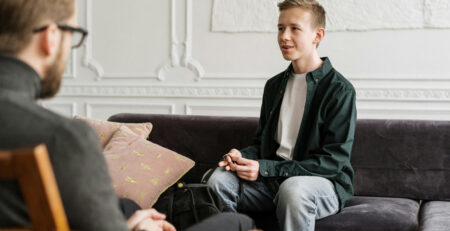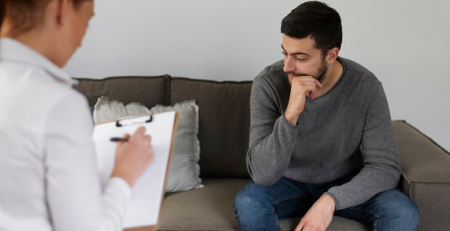What to Expect in Your First Therapy Session in Minneapolis
Starting therapy can feel both exciting and daunting. Whether you’re seeking support for mental health challenges, navigating life changes, or simply exploring personal growth, your first therapy session is an important step. For those in Minneapolis, a city known for its emphasis on health and wellness, finding the right therapist is a significant part of the journey. This blog will guide you through what to expect during your first therapy session, how to prepare, and how Minneapolis’ unique mental health community can support you.
Preparing for Your First Therapy Session
Before your first session, it’s helpful to take some time to prepare both mentally and logistically:
Research Therapists in Minneapolis: Find a therapist whose specialization matches your needs. Whether you’re dealing with anxiety, trauma, or relationship issues, Minneapolis offers a diverse range of therapists with various approaches, including cognitive-behavioral therapy (CBT), EMDR, and mindfulness-based practices.
Understand the Practical Details: Confirm the location of the office or the platform for virtual sessions, review your insurance coverage, and inquire about payment options if needed.
Set Goals: Reflect on what you hope to achieve in therapy. While goals may evolve over time, having a general idea can help your therapist tailor the session to your needs.
Bring Relevant Information: Write down any key details about your mental health history, medical conditions, or medications to share with your therapist if relevant.
Arriving at the Session
In Minneapolis, many therapists work in welcoming spaces designed to promote comfort and relaxation. If your session is in person, you’ll likely arrive at an office or shared practice location. For virtual sessions, ensure you’re in a quiet, private space with a reliable internet connection.
Check-In Process: If you’re visiting an office, you may need to fill out some paperwork, including consent forms and a brief intake questionnaire. This paperwork helps your therapist better understand your background and concerns.
Creating a Safe Environment: Therapists in Minneapolis often emphasize creating a judgment-free, confidential space where you can openly share your thoughts and feelings.
The Structure of Your First Session
The first therapy session is typically focused on building rapport, gathering information, and setting the stage for future work. Here’s what you can expect:
- Introductions and Building Comfort
Your therapist will start by introducing themselves, explaining their approach to therapy, and outlining the structure of sessions. This is an opportunity for you to ask questions about their experience, qualifications, and style of therapy.
- Discussing Your Concerns
The therapist will invite you to share what brings you to therapy. While it’s natural to feel nervous, remember that there’s no “right” or “wrong” way to share your story. You might discuss:
Challenges you’re facing (e.g., stress, anxiety, relationship issues).
Specific events or experiences that prompted you to seek help.
Your emotions and how they’re affecting your daily life.
- Gathering Background Information
To better understand your situation, the therapist may ask questions about:
Your personal and family history.
Your physical health and any existing medical conditions.
Your coping mechanisms and support systems.
Your goals for therapy and what you hope to achieve.
- Establishing Goals and Expectations
The session will often conclude with a discussion of your goals and how therapy can help. Together, you and your therapist will set initial objectives and agree on the frequency of sessions. You might also discuss the type of therapy that will be most effective for your needs.
How Therapists in Minneapolis Stand Out
Minneapolis is home to a vibrant mental health community, with therapists who often integrate traditional and innovative approaches. Here are some unique aspects of therapy in this city:
Holistic Practices: Many therapists incorporate mindfulness, meditation, and even nature-based therapy, taking advantage of Minneapolis’ scenic parks and lakes.
Cultural Competence: With its diverse population, Minneapolis therapists often emphasize inclusivity and cultural sensitivity, ensuring therapy feels welcoming to all.
Community Resources: Minneapolis boasts numerous mental health organizations and support groups, providing additional avenues for care outside individual therapy.
After the First Session
Leaving your first therapy session, you might feel a mix of emotions — relief, curiosity, or even a bit of exhaustion from discussing personal topics. This is normal. Here are some tips for what to do next:
Reflect on the Session: Take time to process your experience. Consider what felt helpful and whether you’re comfortable with your therapist.
Communicate Feedback: If there’s anything you’d like to adjust about the therapy process, share this with your therapist in future sessions.
Schedule Your Next Session: Consistency is key to progress in therapy, so try to set a regular schedule that works for you.
Practice Self-Care: Engaging in therapy can bring up deep emotions, so prioritize rest, relaxation, and activities that bring you joy.
Conclusion
Your first therapy session in Minneapolis marks the beginning of a meaningful journey toward self-discovery and healing. By knowing what to expect and preparing in advance, you can approach the process with confidence. Remember, therapy is a collaborative effort, and finding the right therapist can make all the difference. Whether you’re addressing specific challenges or simply seeking personal growth, Minneapolis offers a supportive and diverse community of mental health professionals to help you every step of the way.









Leave a Reply